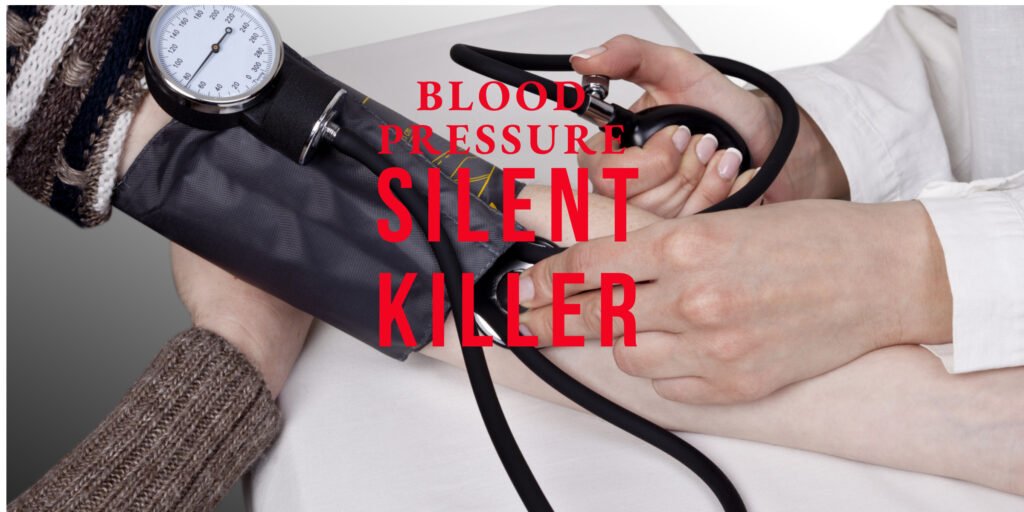Add Your Heading Text Here

Understanding the Silent Killer : Blood Pressure
Table of Contents
1. Introduction
Welcome to a comprehensive guide on blood pressure, an essential aspect of overall health. Blood pressure is often referred to as the “silent killer” due to its stealthy nature and potentially serious consequences. In this article, we will delve into the depths of blood pressure, its types, measurement, impact on health, lifestyle modifications, medications, and the importance of monitoring and prevention.
2. What is Blood Pressure?
Blood pressure is the force exerted by circulating blood against the walls of the arteries as the heart pumps it around the body. It consists of two main measurements: systolic pressure (the pressure in the arteries when the heart beats) and diastolic pressure (the pressure in the arteries when the heart is at rest between beats).
3. Types of Blood Pressure
3.1 Primary Hypertension
Primary hypertension, also known as essential hypertension, is the most common type of blood pressure disorder. It develops gradually over time and has no identifiable cause, making it essential to manage through lifestyle changes and medications.
3.2 Secondary Hypertension
Secondary hypertension, on the other hand, results from an underlying condition such as kidney disease, hormonal disorders, or certain medications. Identifying and treating the root cause is crucial in managing secondary hypertension.
4. Measuring Blood Pressure
4.1 Systolic Blood Pressure
Systolic blood pressure is the higher number of the blood pressure reading and represents the force on the artery walls when the heart contracts.
4.2 Diastolic Blood Pressure
Diastolic blood pressure is the lower number and signifies the pressure on the artery walls when the heart is at rest.
5. Understanding Hypertension
5.1 Causes of Hypertension
Hypertension can be caused by various factors, including genetics, unhealthy lifestyle choices, obesity, high salt intake, and chronic stress.
5.2 Risk Factors
Certain risk factors, such as age, family history, race, and chronic conditions like diabetes, increase the likelihood of developing hypertension.
6. The Impact of Hypertension on Health
6.1 Heart Disease
Untreated hypertension can lead to heart disease, including heart attacks, heart failure, and irregular heart rhythms.
6.2 Stroke
High blood pressure is a significant risk factor for stroke, which occurs when there is a disruption in the blood flow to the brain.
6.3 Kidney Damage
Persistent hypertension can damage the blood vessels in the kidneys, affecting their ability to filter waste from the blood properly.
7. Lifestyle Modifications to Manage Blood Pressure
7.1 Healthy Diet
A balanced diet rich in fruits, vegetables, whole grains, and lean proteins can help control blood pressure.
7.2 Regular Exercise
Engaging in physical activity regularly is essential for maintaining a healthy blood pressure level.
7.3 Stress Management
Chronic stress can contribute to hypertension, so learning effective stress management techniques is vital.
7.4 Limiting Alcohol and Tobacco
Excessive alcohol consumption and smoking can raise blood pressure and should be avoided or minimized.
8. Medications for Hypertension
8.1 Diuretics
Diuretics help the body eliminate excess sodium and water, reducing the volume of blood flowing through the blood vessels.
8.2 Beta-Blockers
Beta-blockers decrease heart rate and reduce the force of the heart’s contractions, thus lowering blood pressure.
8.3 ACE Inhibitors
ACE inhibitors relax blood vessels, making it easier for blood to flow and lowering blood pressure.
8.4 Calcium Channel Blockers
Calcium channel blockers prevent calcium from entering the heart muscle and blood vessel walls, leading to lowered blood pressure.
8.5 Angiotensin Receptor Blockers
Angiotensin receptor blockers block the action of a hormone called angiotensin II, leading to reduced blood vessel constriction and lower blood pressure.
9. Monitoring and Preventive Measures
9.1 Regular Check-ups
Regular medical check-ups are essential for monitoring blood pressure and overall health.
9.2 Home Blood Pressure Monitoring
Home blood pressure monitoring can provide valuable information about blood pressure patterns and aid in early detection.
10. The Connection Between Blood Pressure and Lifestyle
Maintaining a healthy lifestyle can significantly impact blood pressure levels, highlighting the importance of making positive choices for overall well-being.
11. Burstiness: Unexpected Spikes in Blood Pressure
Burstiness refers to sudden and unexpected spikes in blood pressure readings, which may require immediate attention.
12. Perplexity: Understanding Fluctuations in Blood Pressure Readings
Blood pressure readings can vary throughout the day due to various factors, making it essential to consider perplexity while monitoring.
13. The Importance of Early Detection and Treatment
Early detection of hypertension and its management can prevent serious complications and improve quality of life.
14. Conclusion
In conclusion, blood pressure is a critical indicator of cardiovascular health. By understanding the types, measuring techniques, and impacts of hypertension, we can take proactive steps towards prevention and treatment. Embracing a healthy lifestyle, regular monitoring, and adhering to medical advice can go a long way in ensuring optimal blood pressure levels and overall well-being.
15. FAQs
Q1. Can blood pressure be managed without medications?
Yes, lifestyle modifications such as a healthy diet, regular exercise, and stress management can help manage blood pressure without medications.
Q2. Is hypertension hereditary?
Genetics can play a role in hypertension, making individuals with a family history of high blood pressure more prone to developing it.
Q3. Are there any natural remedies for hypertension?
While lifestyle changes are the primary approach, certain herbs and supplements like garlic, hawthorn, and fish oil may have modest blood pressure-lowering effects.
Q4. Can children have hypertension too?
Yes, hypertension can affect people of all ages, including children and adolescents.
Q5. Can I stop taking hypertension medications once my blood pressure is under control?
It is essential to consult with a healthcare professional before making any changes to medication regimens, as stopping medication abruptly can be risky.